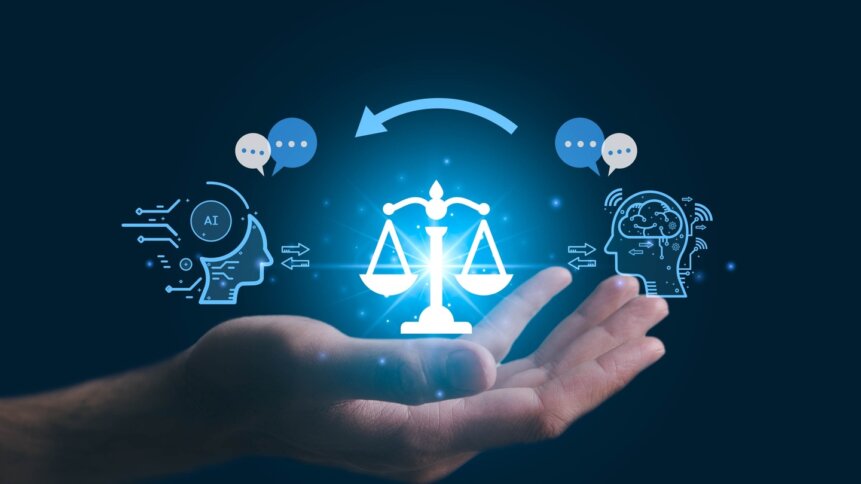
Artificial Intelligence (AI) has revolutionized industries, transformed daily lives, and opened new frontiers in technology. Yet, with its rapid advancement comes a host of ethical dilemmas that challenge our understanding of morality, responsibility, and fairness. From privacy concerns to bias in algorithms, the ethical landscape of AI is complex and evolving. In this article, we will delve into the pressing ethical issues surrounding AI, explore the moral implications of its use, and discuss how we can navigate these challenges.
1. The Ethical Landscape of AI
Understanding AI’s Impact on Society
AI’s influence is pervasive, affecting everything from healthcare and finance to education and entertainment. Here’s a snapshot of its societal impact:
- Healthcare: AI can predict patient outcomes and assist in diagnostics, potentially improving treatment accuracy. However, it also raises concerns about data privacy and the potential for algorithmic bias.
- Finance: AI algorithms optimize trading and risk management but can also exacerbate financial inequalities if not designed with fairness in mind.
- Employment: Automation and AI-driven systems can increase productivity but may also lead to job displacement and economic disruption.
Core Ethical Issues
The ethics of AI encompass several critical areas:
- Bias and Fairness: AI systems can perpetuate existing biases if trained on biased data, leading to unfair outcomes.
- Privacy: AI technologies often rely on large datasets, raising concerns about how personal information is collected, stored, and used.
- Accountability: Determining responsibility for AI-driven decisions and actions can be challenging, especially when outcomes are harmful.
2. Bias and Fairness in AI
The Challenge of Algorithmic Bias
Algorithmic bias occurs when AI systems produce prejudiced outcomes due to biased training data or flawed algorithms. Here’s why it’s a concern:
- Training Data: If the data used to train AI models reflect historical biases, the AI can inadvertently reinforce these biases. For example, facial recognition systems have shown higher error rates for people of color.
- Decision-Making: AI-driven decisions in hiring, law enforcement, and lending can disproportionately affect marginalized groups if not carefully monitored.
Addressing Bias in AI
To mitigate bias, several strategies can be employed:
- Diverse Data: Ensure that training datasets are representative of diverse populations to reduce the risk of biased outcomes.
- Transparency: Develop AI systems with transparent algorithms that allow for scrutiny and understanding of decision-making processes.
- Continuous Monitoring: Regularly review and audit AI systems to identify and correct biases that may emerge over time.
3. Privacy Concerns with AI
Protecting Personal Data
AI technologies often require access to vast amounts of personal data, raising significant privacy concerns:
- Data Collection: Collecting personal data for AI training and operation can lead to privacy breaches if not handled properly.
- Data Security: Safeguarding data from unauthorized access and misuse is crucial for maintaining user trust and compliance with privacy regulations.
Balancing Innovation with Privacy
To strike a balance between technological advancement and privacy:
- Data Minimization: Collect only the data necessary for AI functions and avoid storing excessive or sensitive information.
- Anonymization: Use data anonymization techniques to protect individual identities while still leveraging data for AI development.
- User Consent: Obtain explicit consent from users before collecting and using their data, and provide options for data access and deletion.

4. Accountability and Responsibility in AI
Who Is Responsible for AI Decisions?
Determining accountability for AI-driven decisions is a complex issue:
- Developers and Designers: Those who create and deploy AI systems must ensure that their designs are ethical and that they address potential risks.
- Organizations: Companies using AI are responsible for how these systems are implemented and for addressing any adverse impacts.
- Regulators: Governments and regulatory bodies have a role in establishing guidelines and standards for ethical AI use.
Establishing Ethical Guidelines
To foster accountability in AI:
- Ethical Frameworks: Develop and adhere to ethical frameworks that guide AI development and deployment, such as the AI Ethics Guidelines by the European Commission.
- Stakeholder Engagement: Engage with diverse stakeholders, including ethicists, technologists, and affected communities, to address ethical concerns and improve transparency.
5. FAQs: Your Burning Questions Answered
Q1: What is algorithmic bias, and why is it a problem?
Algorithmic bias occurs when AI systems produce unfair or prejudiced outcomes due to biased training data or algorithms. It’s a problem because it can lead to discriminatory practices and reinforce existing inequalities.
Q2: How can privacy be protected when using AI?
Privacy can be protected by minimizing data collection, anonymizing data, and ensuring that user consent is obtained before collecting or using personal information.
Q3: Who is responsible for ethical AI use?
Responsibility for ethical AI use lies with developers, organizations, and regulators. Each has a role in ensuring that AI systems are designed and deployed ethically.
Q4: What are some examples of bias in AI?
Examples include facial recognition systems that perform poorly for people of color and hiring algorithms that favor certain demographic groups over others.
Q5: How can businesses address ethical concerns with AI?
Businesses can address ethical concerns by implementing diverse data practices, ensuring transparency in AI systems, and following established ethical guidelines.
6. Conclusion: Navigating the Ethics of AI
The ethics of AI present both challenges and opportunities as we navigate this rapidly evolving field. By addressing issues of bias, privacy, and accountability, we can harness AI’s potential while ensuring that its use aligns with our moral values and societal norms.
As AI continues to shape our world, it’s crucial for all stakeholders—developers, organizations, and regulators—to collaborate in creating ethical frameworks and practices that promote fairness, transparency, and respect for privacy. Embracing these principles will help us build a future where AI enhances our lives while upholding our shared ethical standards.
For further reading on AI ethics and responsible technology, visit:
For additional resources, explore AI Ethics Guidelines by the European Commission and AI Now Institute.




